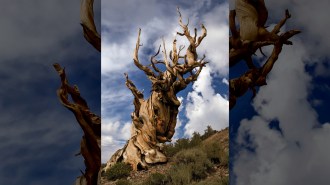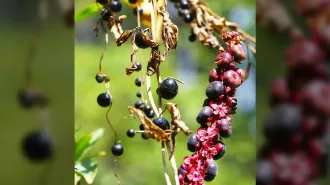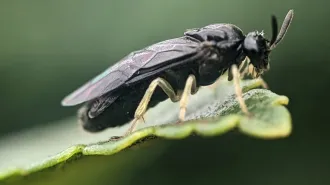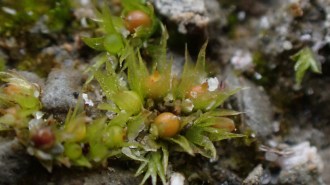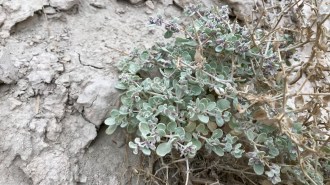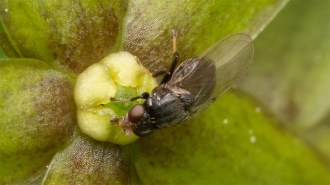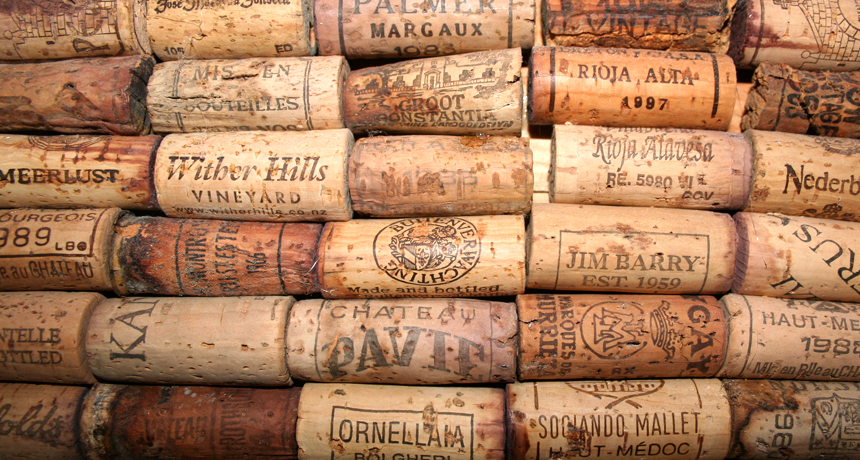
CORK CONSEQUENCES The oak trees that produce wine cork may set genes that handle environmental stress on overdrive when dealing with high temperatures, drought and ultraviolet rays, changing the quality of the cork.
Frank Papenbroock/Wikimedia Commons, CC BY-SA 3.0
Even the most superb wine won’t last without its cork, but the quality of this renewable oaken resource has nose-dived in recent years. A new genetic study of trees that produce high- and low-quality cork divulges some clues behind this decline, hinting at a possible link to climate change.
A great cork safeguards a wine’s taste and its aging process, while inferior cork can taint the vino’s flavor. Cork is made from the protective outer layer of bark surrounding Quercus suber oak trees, which grow only in southwest Europe and northwest Africa. But the global supply of cork, a $2 billion industry, has faced problems with quality and competition. Synthetic wine stoppers and metal caps offer a cheap alternative and have boomed in popularity in recent years, but oaken corks are still preferred by wine aficionados.
“Cork quality has been decreasing over the years, no one knows why,” says Rita Teixeira of the University of Lisbon. “Producing a fruitful cork tree takes about 50 years, so it’s urgent that we start studying reasons behind the downturn.”
Industry standards define bad cork as thin layers of bark that possess lots of lenticular channels — little air-penetrating conduits in the plant tissue. Stoppers made from bad cork let more air through than good cork stoppers. If too much oxygen seeps into a wine bottle, it can react with alcohol to form acetic acid, giving the wine the sour taste of vinegar.
Teixeira and colleagues compared gene activity between five high-quality cork trees and five low-quality trees from Southern Portugal. Good cork had a higher abundance of heat-shock proteins, which help other proteins form their correct shapes even under stressful conditions. Heat-shock proteins also aid cellular division, permitting the growth of thicker bark. Previous studies have found that heat-shock proteins guard cork trees from ultraviolet light, high temperatures and drought — all of which have steadily become bigger problems in Portugal over the last century.
In bad cork, the researchers observed less gene activity for heat-shock proteins. But those trees may have an alternative defense against similar stresses. Genes that produce phenolic compounds, brownish UV-absorbing chemicals that pool in the bark’s lenticular channels, were more ample in bad cork. Bad cork harbors twice the load of phenolic compounds as good cork does, the team reports June 22 in the Journal of Experimental Botany.
“Our original hypothesis was that if the tree needs more protection, then it would produce thicker cork. But by producing more phenolics and having more lenticular channels, [a bad cork] tree might be shielded against the UV light,” Teixeira speculates.
Other genes that were more active in low-quality cork also suggested a reaction to UV exposure and water shortages. Genes that temper oxidative stress and fix DNA damage were elevated in bad cork. Cell division also seemed stunted in bad cork, explaining the trees’ thinner bark. Slowing growth may help the trees during harsh times such as drought: Minimizing cell division could protect a tree’s DNA from UV-triggered mutations or help conserve energy.
“The natural regeneration of the cork oak is slow and can be further affected by climate change,” says plant systems biologist Mónica Sebastiana of the University of Lisbon, who wasn’t involved in the research. “Genetic differences outlined in this study could yield future diagnostic tests for selecting the best plants for breeding programs to increase quality in cork oak groves,” she says.
